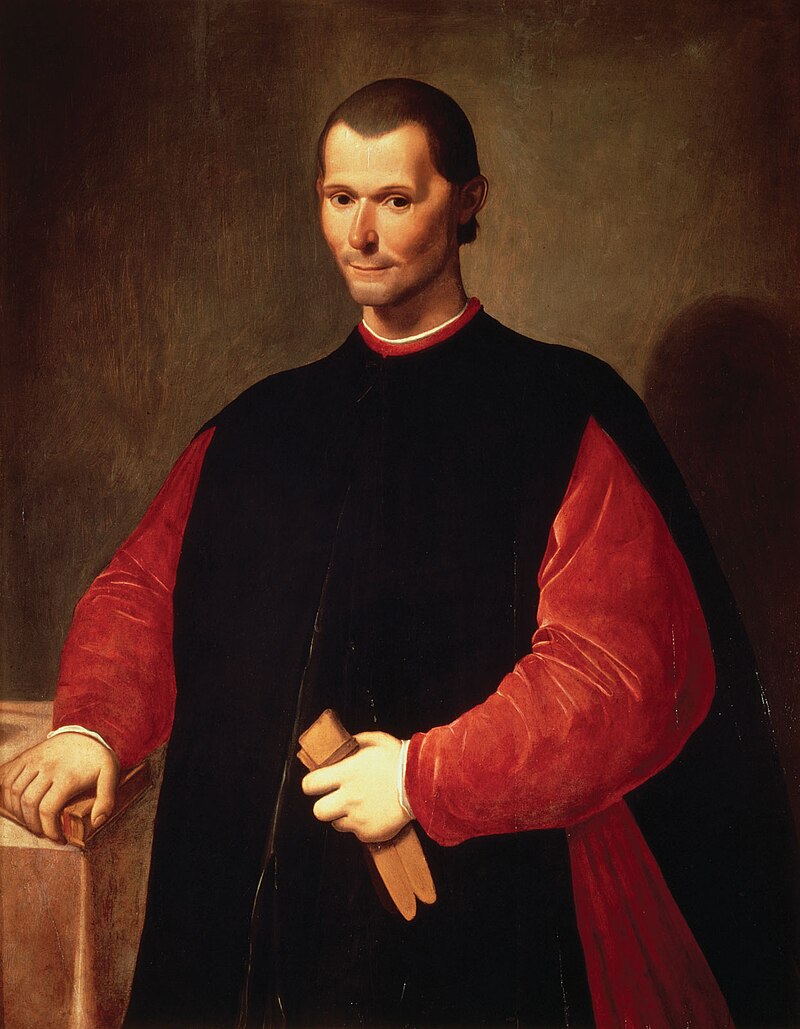Machiavelli’s leader who once tamed rivers and armies must now tame algorithms, biases and rapid feedback loops that operate in real time
By Euripides L Evriviades
When Niccolo Machiavelli wrote his emblematic work The Prince in 1513, he was dissecting the raw mechanics of realpolitik in an age of fragile states, restless rulers and shifting alliances. His counsel was blunt because he described politics as it was, not as it ought to be. Five centuries later, his questions have not lost their force. They echo in a world where power is no longer wielded only by humans but is mediated, amplified and sometimes distorted by artificial intelligence (AI).
If Machiavelli’s Florence was shaped by the sword and the printing press, ours is shaped by algorithms and data. The modern “Prince” may be a state, a corporation, an autonomous system, or a group of unelected technology magnates who govern silently through predictive models and curated feeds.
The battlefield is no longer Florence or Milan but the digital realm, where mastery of AI confers substantial leverage over trade, finance, information flows, perception and military advantage. Those who command this space shape the strategic environment for everyone else. That is the essence of the AI race.
From virtù and fortuna to data and probability
At the heart of The Prince lies the tension between virtù, i.e., a leader’s ability to shape events through skill and will, and fortuna, i.e., the force of chance that disrupts every plan. Machiavelli urged rulers to anticipate the unexpected and to bend fortune to their advantage.
In the age of AI, virtù becomes the mastery of data, while fortuna becomes probability, randomness and the possibility of systemic shock – when a small failure triggers disruption across a whole network. The leader who once tamed rivers and armies must now tame algorithms, biases and rapid feedback loops that operate in real time. Those who understand data reduce their dependence on fortune by transforming uncertainty into prediction.
Yet Machiavelli would warn today’s algorithmic princes that overconfidence in technology invites ruin. Fortune, like data, may be measured and modelled, but it never fully yields to control.
His famous dictum “It is better to be feared than loved, if you cannot be both” takes a new meaning today. Fear is no longer expressed only through military power, but through dependence: dependence on digital infrastructure, on essential platforms and on opaque systems. Such opaque systems – whose workings cannot be understood, or audited by the people who depend on them – shape choices without being noticed. Power lies less in coercion than in indispensability, i.e., the leverage that arises when others cannot function without your systems.
The algorithmic court
Machiavelli warned princes to guard against flatterers, sycophants and inept advisors. In our era, these courtiers take a new form: algorithms – opaque and self-reinforcing systems that influence the decisions of governments, corporations and citizens alike.
Algorithms flatter by confirming biases, amplifying preferences and generating illusions of certainty. Leaders who trust them uncritically risk mistaking the echo of their own assumptions for genuine insight.
Modern practitioners of statecraft, including diplomats, must therefore cultivate algorithmic literacy: the ability to question machine outputs, understand the limits of training data and recognise the pull of automation bias. Unchecked automation can turn the ruler into the ruled. The prince must command his tools, not be commanded by them.
Appearance and reality in a digital mirror
Machiavelli understood the power of appearances. Reputation, he wrote, is a weapon as sharp as any sword. Rulers must appear merciful and humane even when necessity forces them to act otherwise.
Today, appearance is crafted in a digital mirror. AI generates deepfakes, curates visibility and drives narratives that can build or destroy legitimacy within hours. Public confidence no longer rests on institutions alone, but on algorithmic sentiment – the engineered perception of credibility and reality. Whatever is defined as real produces real consequences.
This poses a particular challenge for democracies. Elections, public trust, institutional legitimacy and the safeguards of human rights and the rule of law can now be influenced in real time, as AI systems elevate or suppress content at a speed no human oversight can match. When governance becomes reactive to algorithmic signals, democracies risk drifting toward rule by data rather than rule by democracy.
As in Machiavelli’s Florence, illusion can stabilise a ruler only for so long. Synthetic narratives spread at machine speed but collapse just as quickly when reality breaks through. Truth manufactured by machines creates a stability as artificial as its source – and just as fragile.
Power without war
Sun Tzu taught that the highest form of warfare is to subdue the enemy without fighting. Machiavelli sought stability through prudent manipulation. AI now enables both.
Conflict increasingly unfolds below the threshold of open war through cyberattacks, disinformation campaigns, economic coercion and automated propaganda. AI-driven drones can disable infrastructure without a single soldier crossing a border. Bot networks can unsettle democracies. The new fortresses are digital: whoever controls networks, code – the software logic governing digital systems – and data, controls the essential levers of the state.
Machiavelli might say that the most impregnable fortress today is control over information. Yet he would recognise the peril. Power exercised without transparency corrodes legitimacy. Excessive reliance on algorithmic coercion replicates the cruelty he warned against – useful once, destructive when it becomes routine. Prudence, the rarest of virtues, must guide the use of AI.

Recasting Machiavelli for the Algorithmic Age
Several of Machiavelli’s maxims acquire new meaning in an era ruled by code – the new architecture of power.
He understood that controlling information is controlling power. In the digital age, this means controlling data infrastructure – the clouds, platforms and networks that shape modern life.
His dictum that it is better to be feared than loved becomes a warning about dependence: in the AI world, it is better for a system to be indispensable than admired.
His insight that the intelligence of a ruler is revealed by the quality of his advisors applies equally to machine intelligence. The wise leader audits algorithms as carefully as he once scrutinised ministers.
His metaphor that fortune must be mastered becomes a caution: fortune is now encoded in models and probabilities, best interpreted by those who question their assumptions rather than worship their outputs.
And his phrase “the ends justify the means” must be recast for our era. The ends cannot justify machines whose means we do not understand.
The algorithmic Prince
The lessons of The Prince endure because Machiavelli exposed human nature, not because he glorified ruthlessness. Power is a tool, neither good nor evil, yet always dangerous in careless hands.
Today’s princes of technology wield instruments capable of shaping minds, markets and democracies. Their challenge is not to be less Machiavellian, but more enlightened. Virtù in the 21st century means wisdom, transparency and ethical restraint in mastering machines that amplify human will.
For the first time in history, humans are creating tools that may develop functional agency and surpass them in many forms of reasoning. Machiavelli assumed that the prince was always smarter than his instruments. AI challenges this assumption. No ruler can easily govern a system that thinks faster than he does or acts with its own internal logic. Prudence and oversight are no longer optional virtues but essential safeguards in an age when power may shift from human judgment to machine logic.
The digital renaissance has begun. The warning of Florence’s secretary still applies: “The prince who cannot command his algorithms will soon be commanded by them.”
Euripides L Evriviades, ambassador (Ad Honorem), is a senior fellow at the Cyprus Centre for European and International Affairs, University of Nicosia.






Click here to change your cookie preferences